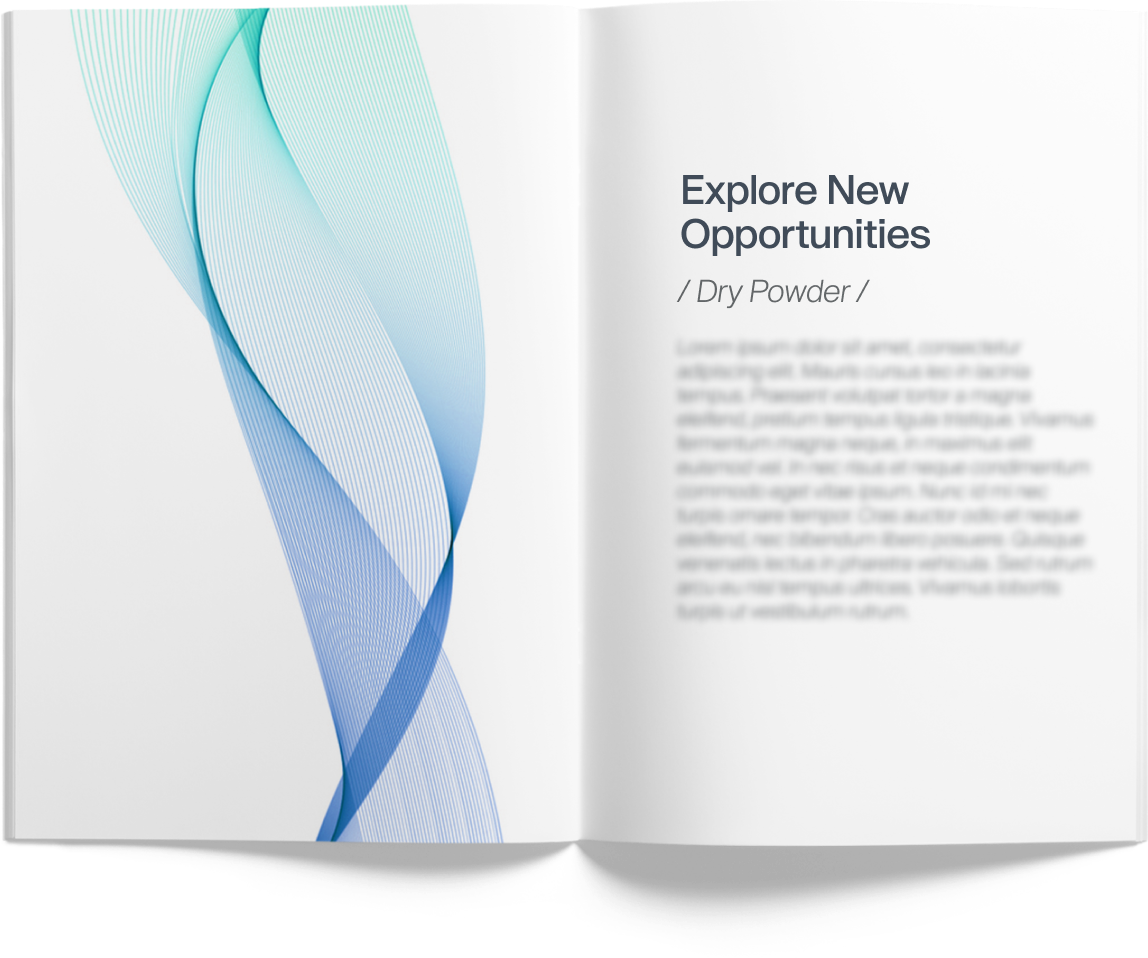Private Market Glossary
What is dry powder in private equity?
Dry powder in private equity generally means cash or highly liquid securities that private equity or venture capital funds have on hand but have not yet deployed (I.e., invested).
As private equity and venture capital funds receive investments from their fund-investors (usually as limited partners or members in the funds), like pension funds and endowments, they don’t necessarily invest all of those funds immediately. Instead, they might hold some dry powder.

A better understanding of dry powder
Dry powder can be the money raised by venture capital funds or private equity funds for investment that has not yet been invested (which may include cash and cash-like reserves) in accordance with the fund’s investment strategy – such as investing in private startups or real estate.
While investment funds might want to hold onto some cash for flexibility, such as to pounce on attractive investment opportunities or put more money into startups in need of cash, they also might not want to hold too much dry powder. That’s because those cash-like reserves might not earn the returns that could potentially be gained by investing in the fund’s primary strategy (again, investing in private startups being an example).
Dry powder can exist outside of the investment fund context, such as when retail investors hold some cash to similarly gain flexibility. However, the term is commonly used in the context of private market investors like PE and VC funds.
If venture capital funds have a lot of dry powder, that could indicate that startups have opportunities to attract that cash, especially if market conditions are such that those investment funds are pulling in capital from institutional (or other) investors faster than they can source deals.
However, high levels of dry powder could also indicate that investors are being cautious and want to wait to deploy capital until market conditions improve.
What role does dry powder play in the private market?
Dry powder can serve as a pipeline of capital into the private market. In theory, the more dry powder there is, the more potential there is for that money to flow into the private market.
That said, it’s not a guarantee that all dry powder will make its way into private market investments. Many investment funds like to keep a cash buffer, and it’s possible that their strategy would shift from, say, investing in startups to investing in real estate, depending on the investor.
Conversely, if dry powder is low, then private market companies might face more difficulty finding funding, as there’s not as much cash sitting around waiting to be invested.
What are some examples of dry powder?
Dry powder is often considered to include cash and cash-like reserves, but that can take the form of different assets such as:
- Cash: Some dry powder exists as cash, like bank deposits.
- Treasuries: Dry powder can also include highly liquid fixed-income securities, like Treasuries.
- Public stocks: Some investors also keep dry powder invested in public stocks. While that can be more volatile than cash, public equities are generally liquid, so investors could sell public stocks and use that cash when they’re ready to make private market investments.



